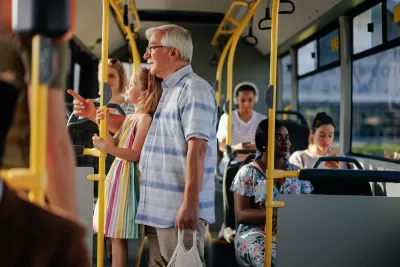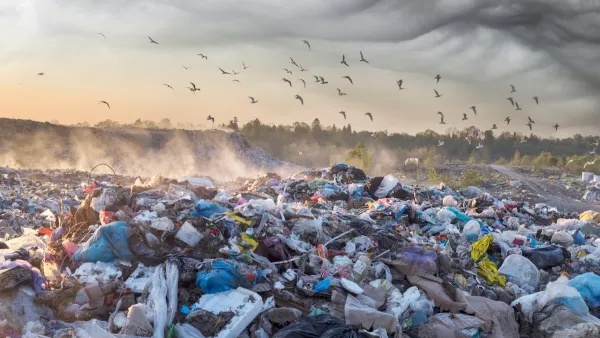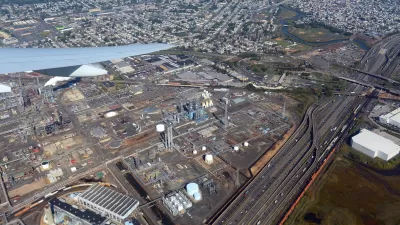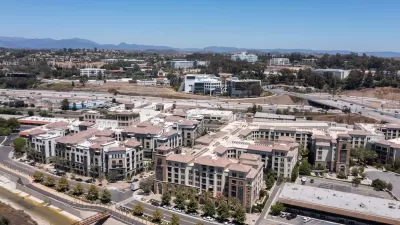A medical student calls for improving public transit to boost the health of people and the environment.

In an opinion piece in The Equation, Harvard medical student Aroub Yousuf argues that access to public transit is key to improving public health. In addition to greenhouse gases, “Conventional cars, trucks and buses also emit fine particulate matter, volatile organic compounds, carbon monoxide, and sulfur dioxide, all of which are associated with respiratory irritation, infection, and chronic disease.”
As Yousuf explains, “I see the direct impact that this cocktail of pollutants has on the increasing severity of respiratory conditions in patients, all while knowing that this same source of pollution is destroying the health of the planet.”
Yousuf notes that public transportation has the potential to keep people healthier, both by reducing harmful emissions and by leading to more physical activity in getting to and from stations and “increased access to public transportation has been shown to improve mental health outcomes in older adults, decreasing feelings of social isolation.”
Yousuf calls on public officials to invest in public transit and view it as a public good rather than a for-profit enterprise. “Investing in reliable, accessible transit service is essential—not only to the 10 million US households who don’t own a vehicle, but also as the bedrock for thriving communities and a better quality of life for all.”
FULL STORY: Investing in Public Transit Is Investing in Public Health

Planetizen Federal Action Tracker
A weekly monitor of how Trump’s orders and actions are impacting planners and planning in America.

San Francisco's School District Spent $105M To Build Affordable Housing for Teachers — And That's Just the Beginning
SFUSD joins a growing list of school districts using their land holdings to address housing affordability challenges faced by their own employees.

The Tiny, Adorable $7,000 Car Turning Japan Onto EVs
The single seat Mibot charges from a regular plug as quickly as an iPad, and is about half the price of an average EV.

Seattle's Plan for Adopting Driverless Cars
Equity, safety, accessibility and affordability are front of mind as the city prepares for robotaxis and other autonomous vehicles.

As Trump Phases Out FEMA, Is It Time to Flee the Floodplains?
With less federal funding available for disaster relief efforts, the need to relocate at-risk communities is more urgent than ever.

With Protected Lanes, 460% More People Commute by Bike
For those needing more ammo, more data proving what we already knew is here.
Urban Design for Planners 1: Software Tools
This six-course series explores essential urban design concepts using open source software and equips planners with the tools they need to participate fully in the urban design process.
Planning for Universal Design
Learn the tools for implementing Universal Design in planning regulations.
Smith Gee Studio
City of Charlotte
City of Camden Redevelopment Agency
City of Astoria
Transportation Research & Education Center (TREC) at Portland State University
US High Speed Rail Association
City of Camden Redevelopment Agency
Municipality of Princeton (NJ)





























